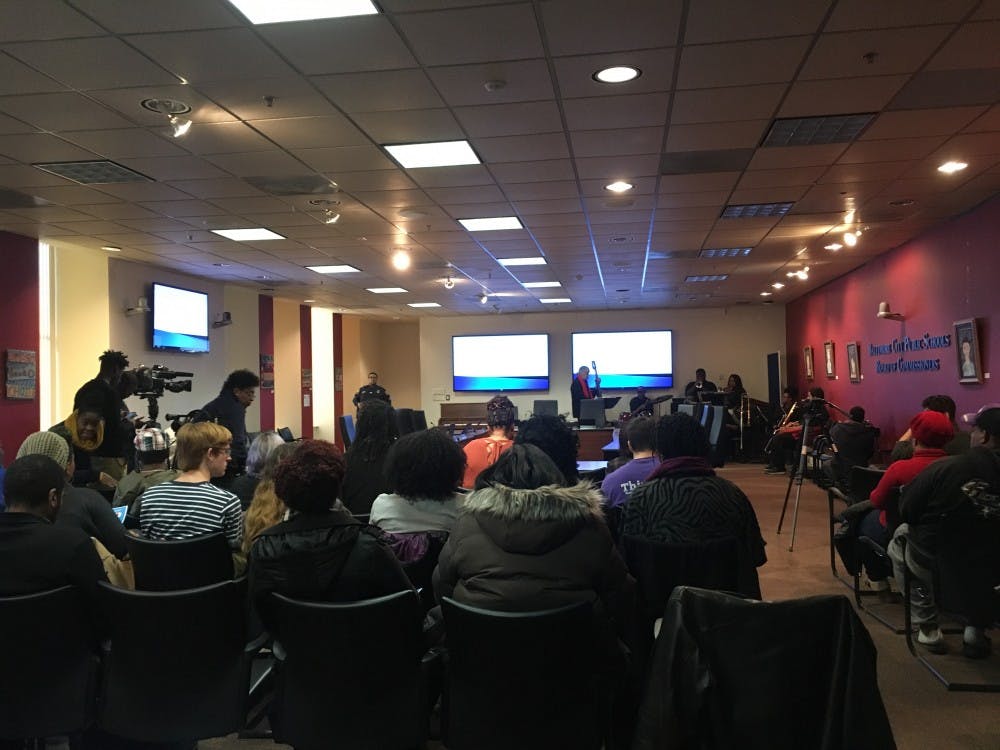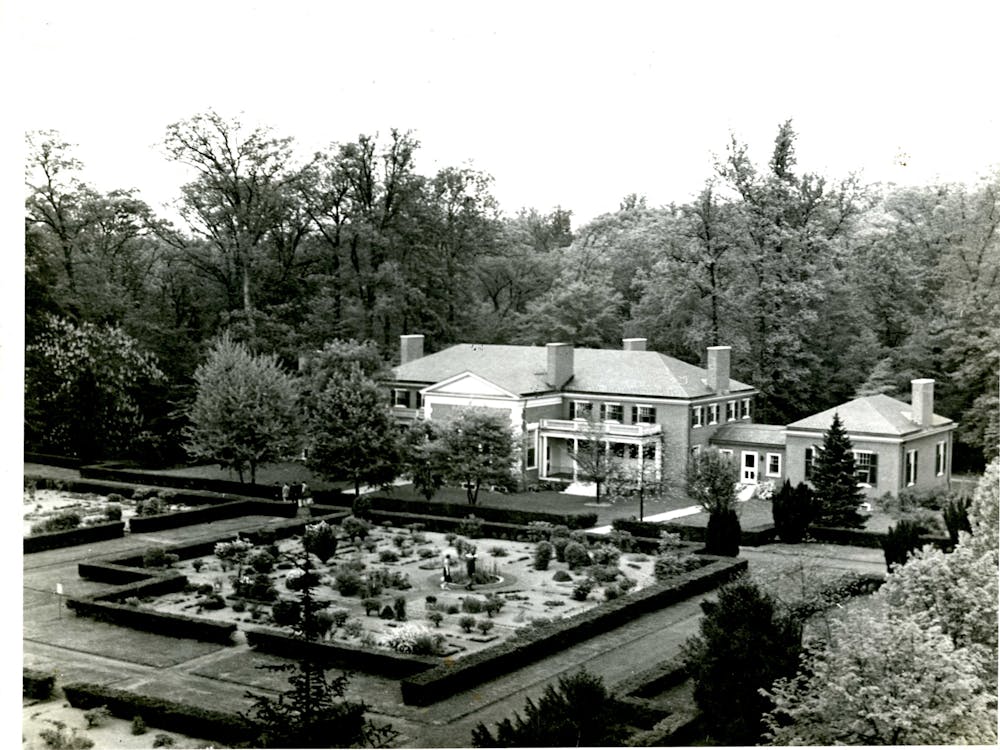At a packed Baltimore City Public Schools (BCPS) board meeting on Tuesday, hundreds of parents, teachers and students gathered to voice their outrage over heating problems that have affected classrooms since schools returned for the new year.
Last week, about 60 BCPS closed after heating problems brought temperatures in the classrooms down to near-freezing levels. In the first week of January, the city saw unusually cold temperatures dropping into the single digits.
Many of the schools were closed on Friday due to burst pipes and broken heating systems. Students bundled up in layers of coats and hats in order to stay warm in their classrooms.
One attendee yelled to the board members that they were out of touch with what the families of Baltimore children were experiencing.
“If your child was in school, if your child was that cold, what would you have done?” she said. “You don’t know how it feels to see my granddaughter go into a cold school and have to try to learn.”
During the public comment section of the meeting, Baltimore Teachers Union President Marietta English expressed disappointment with the city’s response to the heating crisis.
“Baltimore City facilities have been neglected for years, and these extreme temperatures place a great deal of stress on our city’s infrastructures, which made resolving these issues difficult,” she said. “But our children and [staff] members should never have been subjected to endure such inhumane conditions.”
Since 2009, the state has withheld $66 million from approved projects for Baltimore City Schools because the projects exceeded their planned budgets or timeframes for completion. Governor Larry Hogan accused BCPS of mismanaging state funds.
School Board Chairwoman Cheryl Casciani explained that BCPS requires $2.5 billion to complete maintenance projects, of which heating alone costs approximately $1 billion.
She added that BCPS requests $70 to $90 million each year to fund projects it deems to be urgent. According to Casciani, they receive $17 million from the City and $35 million from the state, totalling $52 million, which leaves them significantly short of the amount they need.
She promised to look closer at the school board’s operations to better use their resources despite their challenges with funding.
“The focus should always be on the wellbeing of our students and on creating an environment that is conducive to learning,” Casciani said. “While the circumstances leading to the heating crisis are complicated, it doesn’t eliminate the fact that we, the adults, all of us... let our students down.”
Several attendees expressed their discontent, with audience members shouting at the school board in frustration.
Many were frustrated that the School Board only permitted 10 members of the public to speak at the meeting. They urged Casciani and the other board members to change the agenda so that more people’s voices could be heard.
In response, Casciani added that the school board would host a town hall forum on Jan. 22 for the public to share their concerns.
Attendee Rachel Taurus, a mother of two, said that Casciani was making excuses.
“It’s a tragedy,” she said. “What if we can’t make it on the 22nd? We’ve got jobs. I can’t even go to work like I want to because I have to take care of my children, and I shouldn’t have to make that decision.”
Others, like local organizer Tre Murphy, called for the board to begin hearing the public comments immediately rather than waiting until later in the meeting. He warned that the meeting would “go horribly” if the board refused.
While Casciani stressed that they were holding a normal board meeting rather than a public forum, she ultimately agreed to begin with public comments. She thanked the attendees for expressing their concerns to the school board.
“It’s not an easy time for anybody, particularly with children and grandchildren in the schools,” she said. “You’re wrong that we don’t care about it and that we’re not trying to do something about it. But you are right to be as angry as you are.”
Joshua Allen, Jr., a Baltimore City high school student and a member of the Associated Student Congress of Baltimore City, thanked the members of the school board and called for the attendees to be more respectful.
“This is the type of thing people say about African Americans,” he said. “They say that we’re uneducated and that we yell out without listening to people. This is the type of stuff we try to get away from.”
Several people in the audience heckled Allen and called for him to stop speaking, while others argued that he should be encouraged to share his voice as a student. Police escorted two of the most vocal women out after Allen was unable to continue.
After they had been escorted out, the school board allowed him to finish. He said that he was not there to fight with the other attendees or the board.
“How can you feel like you are respecting the students if you aren’t even listening to one of them?” he said. “I feel like Baltimore City has handled it correctly.”
English, however, criticized the board for not communicating with parents and students effectively.
“Our dedicated teachers and the children that they teach endured not one but two days of these deplorable conditions before the district responded to our letter, closing all of the city schools to begin the process of repairing the heating,” she said. “This took entirely too long.”
BCPS CEO Sonja Brookins Santelises defended the school system’s actions by arguing that they were facing systemic policies that undermine equitable access to education for students in Baltimore schools. She appealed to audience members to work together in order to fix Baltimore’s schools.
“Anybody who wants to know whether we are working for black and brown children, you come with me to Annapolis like we did last year and stand in the cold and get beat up in hallways [and] get told we are not worthy of the money.” she said. “I want a partnership, I’m fine with the hard push, let’s do the push in the direction.”
Santelises criticized the media for portraying Baltimore City and BCPS unfairly, attributing this to the large number of black students in the system. She encouraged attendees to ask difficult questions and “demonstrate leadership.”
“We know the reasons why the narrative is always about incompetence in the city of Baltimore, and it is obviously linked to the demographics of the city,” she said. “[The press] wants the drama, and we feed the cycle that says we aren’t worthy of the same things that other people are worthy of.”
Like Casciani, Santelises apologized to the students who were affected by the heating crisis and urged attendees to work with her towards a solution.
“Young people, you deserve better. We messed up. We are cleaning up, but our mess-up is not the only [one],” she said. “We got decades of mess-up, and a lot of it is connected to funding. So let’s mobilize together. Let’s move together.”
Although some members of the public requested that the board move the meeting to a larger space, the board opted not to. Several overflow rooms were opened to the public where they could watch livestreams of the meeting.
Senior Alizay Jalisi watched from one of those overflow rooms. She was there to lend her support to the community and was unsatisfied with the way the board conducted the meeting.
“I was disappointed, but not surprised, by the board’s stoicism,” she said. “They didn’t directly respond to any of the statements made by the public, in terms of what actions they can take to improve these really awful things.”
Jalisi, who grew up in Roland Park, a predominantly white neighborhood north of campus, attended a private school and did not face freezing classrooms or hazardous health conditions. She noted many of the attendees’ complaints about asbestos in the ceiling of one of the schools.
“Hearing that statement was really eye-opening and a check for my privilege,” she said. “[It reminded] me that I was fortunate enough to go to a school that didn’t have these problems, so it is important for me to listen to the people who had these experiences.”
She believes it is important for Hopkins students to take an active role in the community, whether by attending public meetings or discussing city issues on campus. Jalisi added that students can also contribute time or money to local organizations that are working to improve school conditions.
Junior Marcia Zimmerman also watched the board meeting from an overflow room and agreed that Hopkins students can do more to be involved in the Baltimore community.
“[There is] a reputation about us for not really caring about the city,” she said. “[But] there are a lot of students who are trying to change that perception. And one of the many reasons that that’s important is because we do live here, we do go to school here, and it is important to care about the community that you thrive off of.”
Zimmerman, who is not a Baltimore native, added that students should be concerned about BCPS conditions and make an effort to be informed on the issue regardless of where they grew up.
“It shouldn’t really matter where you’re from,” she said. “The fact is that this is happening, and especially because it’s in a community that we’re a part of, we should care about it.”
Though the heating problems in BCPS have recently garnered national attention, cold classroom conditions have existed for years. Lance McCoy, who graduated from Hopkins in 2013 and received a Masters in Teaching from the University in 2014, attended BCPS from elementary through high school. McCoy has also taught at three public schools, Henderson-Hopkins, Yorkwood Elementary and Baltimore Collegiate School for Boys.
“As a student and a teacher of Baltimore City Public Schools, I did experience a lack of infrastructure or limited resources,” he said. “I’ve been in a really cold or really hot classroom and it’s not the best learning conditions.”
McCoy said that while heating is certainly a problem that must be addressed, it will take a lot more attention and effort to provide an education the students deserve.
“In city schools, kids need a lot more, so it costs more per kid to run the school and make sure they have the appropriate resources,” he said. “On the city level, we have to be able to give more than a dime.”
Alyssa Wooden and Rollin Hu contributed reporting.
Correction: In an earlier version of this article, it incorrectly characterized that the state withdrew funds from BCPS.























Please note All comments are eligible for publication in The News-Letter.